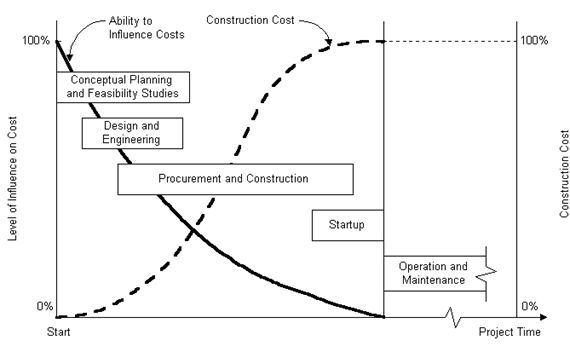Construction and Engineering Project Management
Intensive three-day course
This course is based on the principles of the PMBOK® Guide and the the Construction Extension to the PMBOK® Guide. It aims to introduce project managers to the best practices to be followed when managing projects in the construction and engineering environment.
Who should attend?
|
Course objectives:
- To provide practical guidance and promote effective:
- Project assessment to support the evaluation of the feasibility of new products or services.
- Identification and management of key deliverables to manage the achievement of project goals.
- Stakeholder management in order to manage expectations and maintain support for the project.
- Risks, assumptions, and constraints management to maintain an implementation strategy.
- Risk management in order to manage the impact of threats and opportunities on the project.
- Project charter approval to formalize the project manager authority and acceptance for the project.
- Project requirements management in order to establish detailed project deliverables.
- Subsidiary management plan development in order to manage all aspects influencing a project.
- Project management plan approval and implementation to meet project requirements.
- Change control and corrective action management to ensure project goals and business needs alignment.
- Information management in order to keep stakeholders engaged and informed.
- Project performance management in order to manage any variances and corrective actions.
- Lessons learned management in order to enable continuous improvement.
- Final project acceptance in order to confirm that project scope and deliverables were achieved.
- Financial, legal, and administrative closure in order ensure transfer of liability.
- Project documents and materials archiving for potential use in future projects and audits.
Course content:
|
1. Welcome and introduction.
2. Project Management Terminology.
|
6. Project Planning and Estimating
|
|
08h30 - Morning Session
8. Time Management Planning
|
11. Human Resources Management Planning
|
|
14. Procurement Management Planning
|
21. Monitoring and Controlling
|
Duration and material:
- Three days (21 hours) instructor-led virtual online training or classroom style training in a relaxed learning environment allowing for real-time feedback, questions and answers, and practical exercises.
- Student manuals provided.

